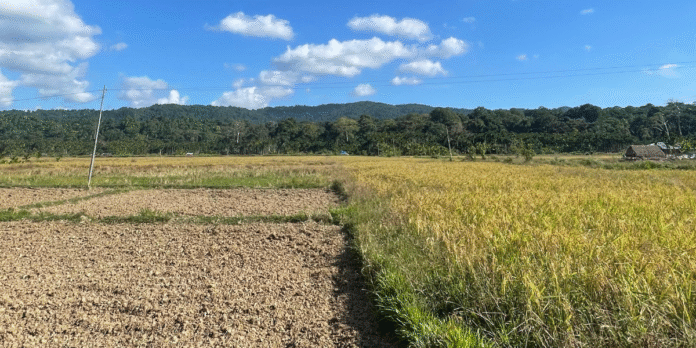Sri Vijaya Puram, June 27
As the Andaman and Nicobar Administration advances its plan to declare the islands “organic by default,” concerns are emerging from multiple agricultural zones over the withdrawal of subsidised fertilisers and the lack of operational alternatives. While the vision and Mission of Organic Andaman (MORGAN) outline a sustainable, self-reliant agriculture system, the transition, according to local observations, appears premature and unsupported in key areas.
The complete stoppage of fertiliser distribution has triggered disruptions in crop production, especially for vegetables and fruit crops traditionally grown in the region. “Vegetable production has gone down due to non-availability of fertilisers like DAP and urea,” one field-level report noted, further observing that “fertiliser subsidy is still being provided by the Government of India, but the administration is not supplying fertilisers to farmers.”
The shift toward organic methods, while welcomed in principle, has not been matched by parallel investments in infrastructure or training. Composting systems, bio-fertiliser units, and biopesticide distribution are still largely unavailable in many rural and tribal areas. “No effective alternative is implemented, and this is causing deep dissatisfaction among farmers,” the report stated.
There is also concern over the administrative vacuum regarding fertilizer retail. “The licensing system of fertiliser dealers has not been renewed for the past five years,” reads one observation. This has left many gram panchayats without functional fertiliser distribution points, cutting off even those interested in legally sourcing inputs.
The push toward organic certification and input production outlined in MORGAN remains largely in the planning stages. Though the mission proposes 24 specific actions, including the establishment of decentralised compost units, seed banks, and pest control labs, implementation timelines are unclear. For now, farmers report a lack of access to “organic fertiliser, biopesticides, and pest management support.”
Pest infestations have further worsened the scenario. “Rugose Spiraling Whitefly and Mealybug are spreading in coconut and papaya crops,” according to local records, with no effective biocontrol support or coordinated mitigation efforts in place. This has led to extensive crop damage in affected areas.
In the absence of reliable alternatives, farmers say productivity is falling, input costs are rising, and market competition is intensifying. “Vegetables are not being produced locally due to fertiliser shortage and are being brought from the mainland,” the observations noted, adding that mainland produce “contains harmful chemicals and poses health hazards,” but continues to dominate markets because of its availability.
Amid these issues, the promise of making Andaman and Nicobar a model for organic farming seems increasingly at risk. While MORGAN aims for ecological sustainability and long-term soil health, stakeholders are calling for a calibrated, inclusive approach that balances ambition with on-ground readiness.
With the next planting season approaching and pest pressures rising, questions remain over whether the organic mission can sustain momentum without basic input support. As one statement bluntly put it: “Stopping fertilisers without any suitable alternative will only lead to more losses.”





